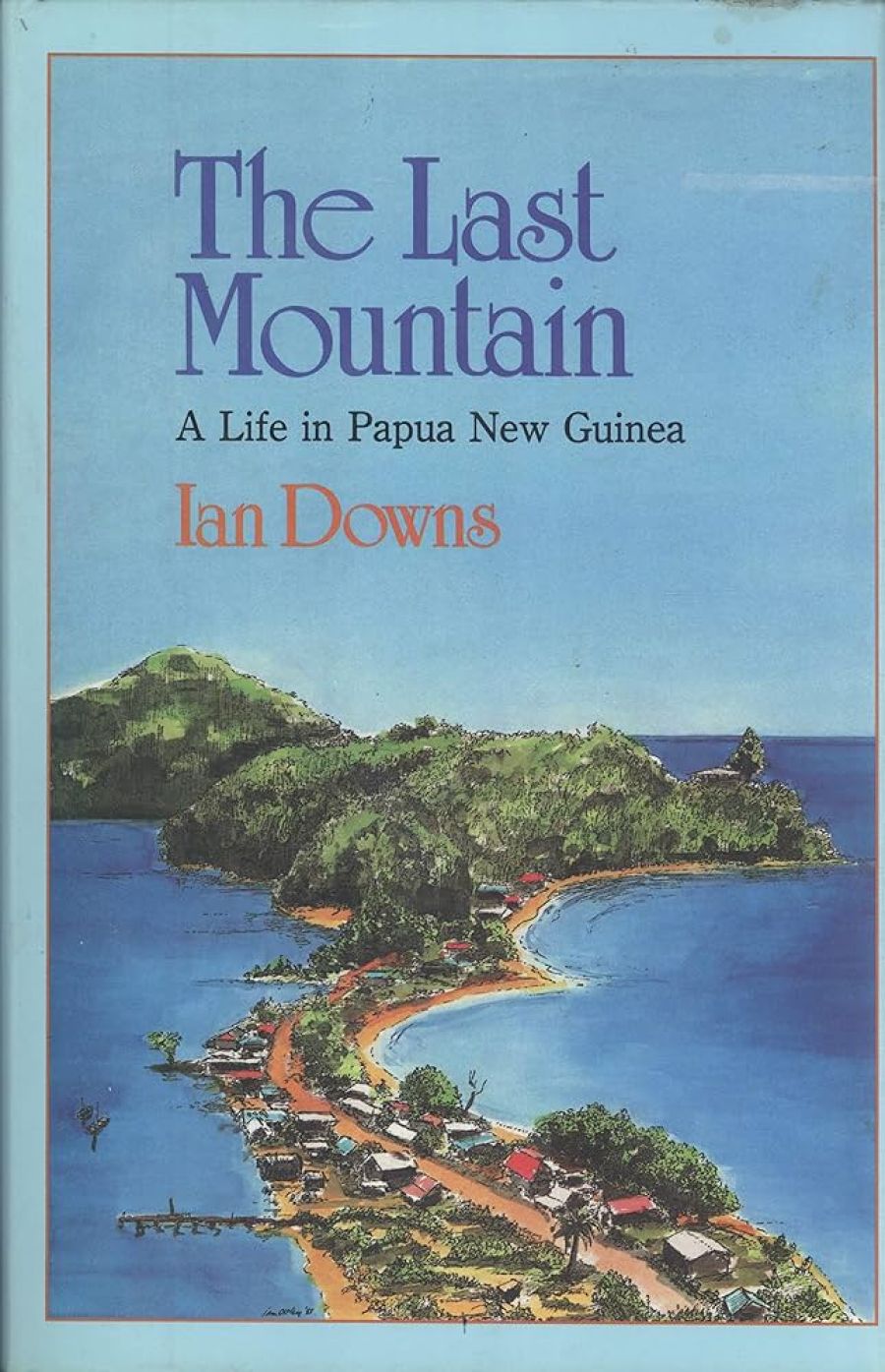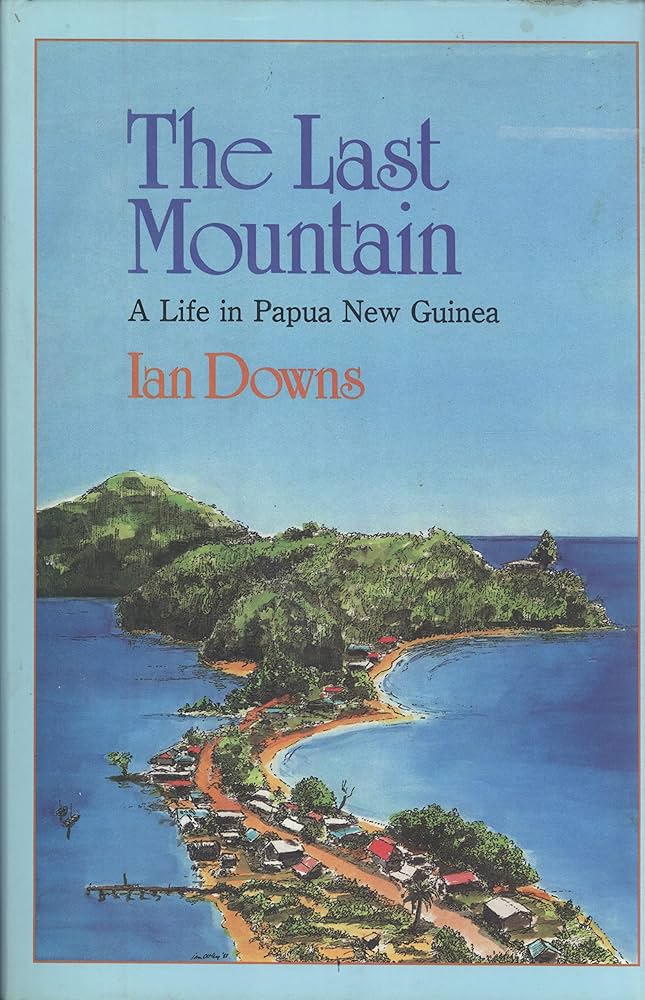
- Free Article: No
- Contents Category: Politics
- Review Article: Yes
- Article Title: Tales from Our Raj
- Article Subtitle: A kind of nostalgia seeps through
- Online Only: No
- Custom Highlight Text:
The last decade or so has seen a spate of books and films about the days of British colonialism. While much of this outpouring has been critical of aspects of those days, it is hard to avoid the sneaking suspicion that underneath it all lurks a fair amount of nostalgia. And here lies the danger in much of this material: it is one thing for colonial survivors to feel nostalgic (as it is hard for people to discredit important actions in their own lives); it is another for them to lure readers into sharing that feeling.
- Book 1 Title: The Last Mountain
- Book 1 Subtitle: A Life In Papua New Guinea
- Book 1 Biblio: University of Queensland Press, 298 pp, $28.95 hb
- Book 1 Cover Small (400 x 600):

- Book 1 Cover (800 x 1200):

It is against this background that I approached Ian Downs’ memoirs with interest but wariness. It is not that Australia’s colonial episode in Papua New Guinea should be too closely linked with the British experience. Papua New Guinea did not offer the kind of rewards to attract hordes of white men and most of its development took place in relatively enlightened times and under the increasingly close scrutiny of the United Nations. And Australia followed the example of Charles I when it was said that ‘nothing became him so much as the manner of his going’: we got out with good grace and in good time.
But, as one who lived in the country for more than three years at the fag-end of that era, I would hate to see a romanticising of the role of Australians there. Feelings of superiority and indifference, opportunism, incompetence and sheer pomposity were present in large dollops, along with the collective financial generosity of our government after World War II and the dedication and energy of some. In my time, I met some admirable Australians. But, as late as 1968, I could also see a patrol officer slap the face of a New Guinea Highlands councillor simply because the people of his remote village were slow to line up to vote in an election. And for unconscious, racist silliness, I will never forget the planter who once complained to me: ‘The trouble with the people of this country is that they think they own it.’ (I could not resist being a bad guest in his house by telling him that they did.)
So for one with an anti-romantic view, Ian Downs starts well with an almost ostentatious declaration against sentimentality, when he says in his preface:
I belonged to that last wave of white men, who, with extraordinary didactic arrogance, went out to colonies to make other people do things they would not have done for themselves. I had my share of ambition and greed occasionally tempered by compassion and altruism. But I never pretended that I really ‘understood’ Papua New Guineans. People are different. Not better or worse. I accepted the differences between us and I left their country when I realised that I belonged to an era that they had outgrown.
Downs’ career in Papua New Guinea was a remarkably interesting and, by many tests, successful one. He first went there as a cadet patrol officer in 1936 and, after war service, returned to the Administration to become one of the best-known field officers of his time. His greatest achievement was as the originator and driving force behind the building of a road linking the western, central and eastern highlands with the coastal plains of the Markham Valley in 1952-53. Through this effort, he did more than any other person to open up the highlands – which holds roughly half the country’s population – to development. He left the Administration in 1956 to become a prosperous coffee planter and exporter and, soon afterwards, was elected to the Legislative Council; he was an important figure in Papua New Guinea politics from then until 1968 through his membership of the Legislative Council and its successor, the House of Assembly.
Downs was and is a frequent critic of aspects of Australian policy and activities in Papua New Guinea. But, in the end, he is a champion of the Australian Administration. This is probably best summed up in words from his earlier book, The Australian Trusteeship: Papua New Guinea 1945-75: ‘The independent nation of Papua New Guinea has since vindicated Australian policies during the period of trusteeship and the work of two generations of Australians who lived and worked [there].’
This points to the biggest single problem with The Last Mountain: it dwells far too much on the machinations of the Administration, white people and their relatively narrow society. Downs tells us amazingly little about Papua New Guineans and their society. While I respect his honesty in proclaiming that he never really ‘understood’ the people of the country, I would have hoped for many more direct observations and perceptions of them during a revolutionary period of their lives. The word ‘revolutionary’ is used advisedly, because most Papua New Guineans moved from first contact with Europeans to self-government in his adult life. One indication of his narrow focus is that he mentions only eighteen Papua New Guineans by name in the entire book, which is otherwise studded with the names of many Australian field officers, miners, planters, traders and the like; he even names an Australian journalist who made the best martini he ever tasted.
Finally, the book does lapse into a worrying kind of subtle nostalgia when Downs writes of a dream of ‘racial partnership’ which, he says, existed for some for a brief period after World War II. The trouble is that, for too many of the Australians who shared that dream, it was not an equal partnership; they could only see themselves, at least for a very long time, as leaders, with Papua New Guineans as their devoted followers. Thus Downs himself attributes almost no responsibility to Papua New Guineans for the attainment of independence, as when he writes:
[The Labor Minister for Territories] Bill Morrison then had the task of convincing [Michael] Somare that he could handle the awesome powers of a head of state. Morrison managed this with skill, patience and the wisdom of a midwife to bring about the birth of a new nation.
This is insultingly dismissive of the role of Papua New Guinea’s first Prime Minister in leading his country from self-government to independence. The Michael Somare I knew needed no persuading that Papua New Guinea was ready to provide its own leaders.


Comments powered by CComment